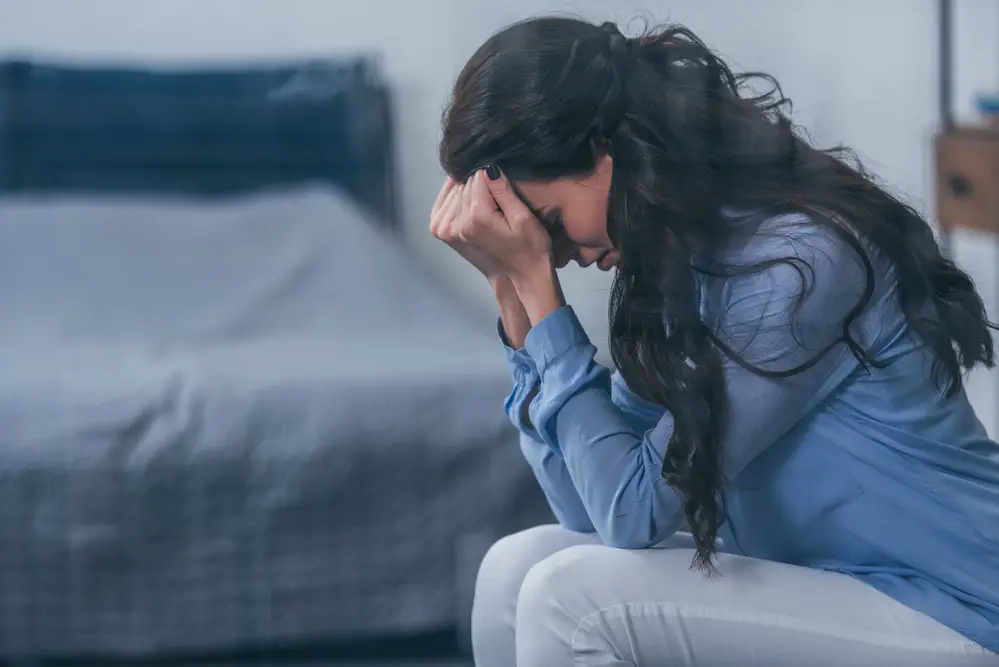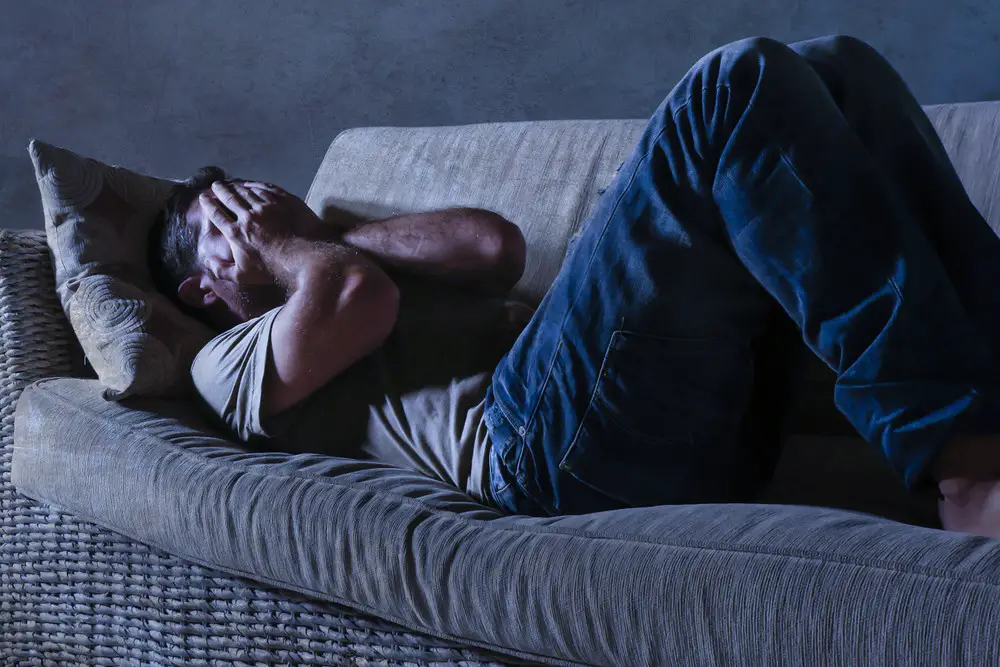As a BetterHelp affiliate, we receive compensation from BetterHelp if you purchase products or services through the links provided
The connection between the body and the mind is more apparent now than ever. Neither of these two halves of human existence is a wholly discrete entity; instead, they overlap, constantly flowing into one another.
If we’re physically injured, the pain and incapacity will impact our mental health and sense of wellbeing, while emotional strains caused by feelings of grief can take a drastic toll on the physical.
One of the most common blurrings of these existential boundaries is when the grief-stricken feel overwhelmed by tiredness, not just of the mind but also of the body. If this is what you’re currently experiencing, you’re not alone.
Let’s explore why you’re feeling this way and when you can expect it to ease up.
What Is Grief?
We often associate grief with losing a loved one, but it can strike in any instance of profound loss. You may have lost your dream job, you might be going through a breakup, or perhaps you’ve lost an item that’s very special to you — all these events can cause feelings of grief.
Typically, grief involves prolonged bouts of profound sadness; however, it can manifest in countless ways depending on the circumstances of the loss and your personality.

Grief And Tiredness
Although tiredness is generally seen as a single state of being, we all feel exhaustion in several different ways throughout our life. These variations can shed some light on how grief affects your energy levels.
- Physical exhaustion — How we might feel after a long day of shopping, a soccer training session, or getting very little sleep.
- Emotional/mental exhaustion — Your body has the fuel it needs for waking life, but your brain lags, unable to utilize your physical energy.
- General exhaustion — This broad feeling of fatigue and lack of motivation can be a mixture of mental, physical, and lifestyle factors.
Each form of tiredness can bleed into the others, but knowing the general classifications can still help you identify the types of exhaustion you’re experiencing due to grief, allowing you to develop specific coping strategies.
For example, if you’re feeling a lot of physical exhaustion, you need to put your feet up and rest your body. If you oscillate between physical and mental fatigue, you should also explore methods of calming your mind.
Next, we will look at a few specific reasons you may feel tired during your grief.

6 Reasons Grief Is Making You Feel Tired
1. Insomnia
Insomnia is a common sleep disorder that prevents people from getting enough rest. However, contrary to popular belief, this condition doesn’t just pertain to the inability to fall asleep but severe sleep disturbances, i.e., persistent waking or consistently waking up too early in the morning.
Sleep disturbances such as these are often brought on by stress and emotional turmoil, so it stands to reason that grief could trigger insomnia.
What Can You Do?
If you’re struggling to fall or stay asleep, consider the following…
- Cut out screen time close to bedtime.
- Resist the urge to nap during the day.
- Limit your caffeine intake or, ideally, cut it from your diet altogether.
- Engage in calming activities before bedtime. For instance, you could replace high-octane, adrenaline-pumping television shows with a light yoga session to wind down both mentally and physically.
- Introduce some melatonin-inducing supplements into your diet.
- Visit your doctor to see if prescription sleep medication is a viable option.
2. Too Much Sleep
When living with grief, we’re often tempted to stay in bed and sleep through the day. This warm retreat is comforting, and in a way, our blanket acts as a shield, protecting us from the pain of waking life.
The same principles apply to feelings of depression and anxiety, which can make up a part of your overall feelings of grief.
It may seem counterintuitive, but getting too much sleep can also exacerbate exertion, as any deviation from your body’s natural rhythms can cause excessive tiredness.
What Can You Do?
You could try…
- Give yourself some minor responsibilities to urge yourself out of bed.
- Express your emotions creatively.
- Have a loved one help you engage with your days.
- If you feel your excessive sleeping is caused by depression/anxiety, it’s best to seek professional help.
3. Hypervigilance
Sometimes, grief can trigger our fight or flight response, inspiring a state of hypervigilance in which we constantly feel on edge, which is not in any way conducive to sleep.
What Can You Do?
Hypervigilance can leave you feeling completely exhausted and unable to find rest, but there are plenty of things you can do to take the edge off.
- Do yoga during the day and before bed.
- Practice breathing exercises and calming affirmations.
- Count from 1 to 10 slowly while taking deep breaths.
- Get plenty of exercise during the day (but not before bed).
- Watch a movie or read a good book… anything that transports you and helps you forget.
4. Breaking Routine
Grief can send your entire life into disarray, and sleep hygiene is often one of the things that takes a dire hit, disrupting your circadian rhythms and biological clock.
You may also find solace in unhealthy coping mechanisms such as drugs and alcohol, which can lead to further exhaustion.
What Can You Do?
It may be the last thing on your mind at the moment, but the best thing you can do here is trying to restore some normalcy to your daily and nightly routine.
5. Hyper-Independence
Hyper-independence is a typical response to emotional trauma in which you feel you have to bear the burden alone. As a result, you shut yourself off from those that might help you, and the stress of dealing with such heavy emotions can cause extreme exhaustion.
What Can You Do?
In this instance, you need to try your hardest to let someone in and help you cope with and process your feelings. It might be the last thing you want to do, but you’ll quickly feel the benefit.

6. Overwhelm
In times of loss, our minds can become so overwhelmed with the reality of the situation that they start to function differently. For example, we may be overrun with intrusive thoughts that wear us down emotionally or be subjected to maddeningly cyclical thoughts that keep the mind racing.
Even though this cerebral behavior is exhausting, it can also make finding sleep impossible, making us increasingly tired.
What Can You Do?
Unfortunately, if this is the case, you may need to spend some time letting your grief breathe and processing your emotions. However, medication might be necessary if the problem continues, so don’t hesitate to visit a doctor.
When Will The Tiredness Subside?
There’s no definite answer here. It’s different for everyone. But one thing’s for sure… You shouldn’t fight your exhaustion. You’re tired because your body and mind need rest, so give it to them.
It’s thought that for most people, the physical symptoms of grief clear up around the 8-week mark, but they can just as well last for years, and specific emotional symptoms can stick with you for life.
That said, even though you may never fully recuperate from such trauma, you will recover by degrees, day by day, steadily building your energy.
Final Thoughts
Grief is one of the most potent and all-consuming emotions we experience in this life, so it’s no surprise that it can leave us feeling rundown and utterly exhausted, both mentally and physically.
There’s no easy way out of it other than making subtle but definite progress each day, trying our hardest to give ourselves the rest we need while reestablishing healthy routines.
- Stress Management: What is the Relationship Between Stress and Addiction? - June 28, 2024
- Exploring Techniques to Maintain a Healthy Lifestyle without Drugs - May 28, 2024
- How Acupuncture Helps Treat Chronic Fatigue Syndrome - May 28, 2024
This site contains affiliate links to products. We will receive a commission for purchases made through these links.




